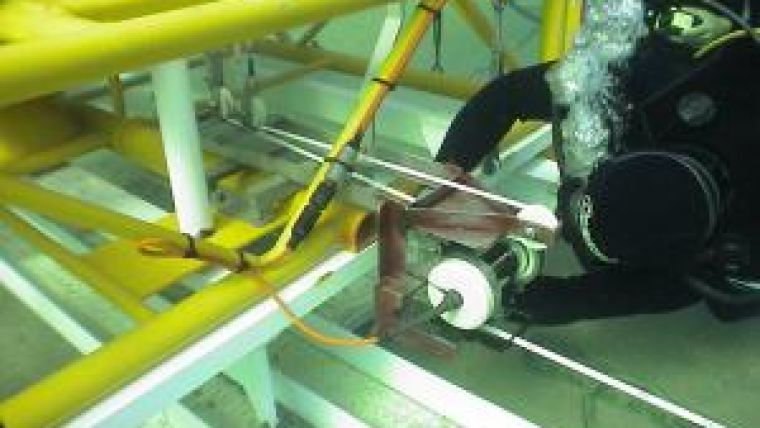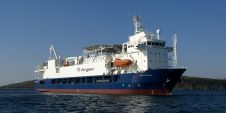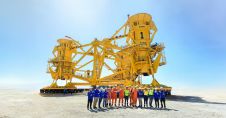Faculty of Marine Sciences of Las Palmas de Gran Canaria University
Established in 1982, it is the first faculty of marine studies in Spain. The experience gained since its creation, coupled with the strategic location of the Canary Islands, make the School of Marine Sciences at the University of Las Palmas de Gran Canaria a reference centre, and an example in the development of teaching marine sciences in Spain and Europe.
The School of Marine Sciences at the University of Las Palmas de Gran Canaria offers undergraduate, graduate and postgraduate programmes. Specifically, it offers Bachelor degrees in Marine Science and Marine Science Graduate courses including master’s degrees in Marine Aquaculture, Coastal Master in Management, Master in Sustainable Management Fisheries and Oceanography-University Master, Expertise Course in Coastal and Harbour Engineering (in collaboration with the Civil Engineering School and the Port Authority of Las Palmas) as well as PhD degrees in Coastal Management, PhD in Sustainable Management of Fisheries and Oceanography PhD.
The School of Marine Sciences at the University of Las Palmas de Gran Canaria has the materials and human resources to offer students training and quality services. The extensive experience and recognised qualifications of the faculty make them fully prepared to offer students quality training. The administrative and service staff is also well-trained and experienced to ensure that students receive adequate attention. The quality of training and services offered in the School of Marine Sciences at the University of Las Palmas de Gran Canaria has been proven by regional and national monitoring processes.
The involvement of the faculty of the School of Marine Sciences at the University of Las Palmas de Gran Canaria in research, development and innovation is undoubtedly outstanding. In the ranking of journals showing the impact of marine sciences in Spain, this faculty is among the top ten centres in the country, at levels comparable to those of the institutes of the National Research Council (CSIC) and the Spanish Institute of oceanography (IEO). The benefit reported for the School and its students in this important research activity is remarkable.
The faculty of the School of Marine Sciences at the University of Las Palmas de Gran Canaria develop their research work in the field of research groups, including Applied Marine and Fisheries Ecology, Applied Marine Physics and Remote Sensing, Observation and modelling of geophysical phenomena and Marine Processes (with research areas: Mixing and boundary layer; Ocean circulation and coastal upwelling; Applied Geophysics; Circulation and Coastal and Estuarine Pollution – the latter led by the author of this article); Biological Oceanography, and Physical Oceanography and Satellite Oceanography (with research areas Marine and Coastal Meteorology Physics Applied, Applied Remote Sensing).
One of the research projects has been published in the journal Scientific Reports, part of the prestigious Nature. It included the first scientific results of the effects of the volcanic eruption on the Canary island of El Hierro, conducted by researchers from the Spanish Institute of Oceanography (IEO) and the Faculty of Marine Sciences (ULPGC) aboard the research vessel Ramon Margalef. Researchers from the FCM are assigned to the Institute of Oceanography and Global Change, IOCAG, and the Spanish Bank of Algae, BEA.
The study shows a warming, acidification and very significant oxygen depletion in waters affected by volcanic emissions. Specifically, the water temperature rose to 18.8° C, the pH decreased to 3-equivalent units of acid at a concentration 1,000 times higher than normal values and down-dissolved oxygen concentration up to 90-100%. These extreme environmental changes caused different responses in marine organisms: from the selection of phytoplankton species adapted to living in high temperatures and high concentrations of copper, which significantly increased their populations, to massive fish kills.
The Spanish Institute of Oceanography, co-operating with the Commission for Coordination and Monitoring of Activities of Research Vessels (COCSABO ) has given permission to degree, bachelor and master of oceanography students to use the new research vessel Alvariño Angeles for 10 days in April 2013 to carry out field work.

Value staying current with hydrography?
Stay on the map with our expertly curated newsletters.
We provide educational insights, industry updates, and inspiring stories from the world of hydrography to help you learn, grow, and navigate your field with confidence. Don't miss out - subscribe today and ensure you're always informed, educated, and inspired by the latest in hydrographic technology and research.
Choose your newsletter(s)
























